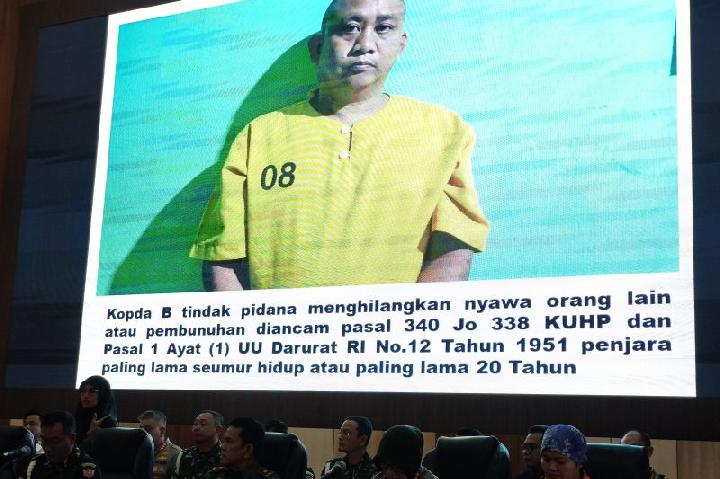The ASEAN Parliamentarians for Human Rights (APHR) have expressed concerns over the scheduled meeting this week between Malaysian Prime Minister Anwar Ibrahim, as the Chair of the Association of Southeast Asian Nations (ASEAN), and Myanmar junta leader Min Aung Hlaing in Bangkok, Thailand.
APHR stated that the meeting poses a risk of legitimizing the military junta regime responsible for atrocities in Myanmar. They also view the meeting as highly damaging to regional efforts to restore peace, democracy, and the rule of law in Myanmar.
APHR urged Prime Minister Anwar Ibrahim to reaffirm his country's longstanding commitment to democracy, human rights, and regional peace. The organization rejected any involvement that would grant undue recognition to the junta, emphasized the need for ASEAN-led efforts to be inclusive and transparent, and stressed the importance of respecting the democratic aspirations of the people of Myanmar.
APHR Member of Parliament and Thai MP Rangsiman Rome stated that since the 2021 coup, no ASEAN Chair has met with the junta leader. Rome asserted that this diplomatic stance was deliberate in denying legitimacy to the military junta regime.
"Prime Minister Anwar’s decision to break this precedent threatens ASEAN’s credibility and downgrades the regional consensus built over the past three years," Rome said in APHR's official release on Wednesday, April 16, 2025.
APHR co-Chair and former Malaysian Parliament member, Charles Santiago, voiced similar concerns. He emphasized that diplomacy must not sacrifice the legitimacy of a "brutal and criminal" regime.
"As the chair of ASEAN in 2025, Malaysia must lead with conviction—championing a rights-based, people-centered approach rooted in justice, not appeasement," he stated.
APHR Chair and Indonesian MP, Mercy Chriesty Barends, regarded Anwar's meeting with Min Aung Hlaing without demanding an end to violence or the restoration of democracy as a dangerous signal. She emphasized that this situation is detrimental not only to the people of Myanmar but also to the broader region.
"It emboldens a military regime that has weaponized humanitarian aid, suppressed democratic voices, and committed unspeakable atrocities with impunity," she said.
Regarding this, APHR Council Member and Timor-Leste MP Angelina Sarmento explained that humanitarian aid to Myanmar must be neutral, impartial, and needs-based.
"Routing assistance through a regime that controls only a fraction of the country and actively obstructs relief to opposition-held areas will not help those in need. It will entrench their suffering," Sarmento stated.
Similarly, in line with other APHR members, Council Member and Philippine MP Arlene Brosas asserted that the people of Myanmar have unequivocally rejected the junta government.
"ASEAN must stand with the people—not the perpetrators of tyranny. Legitimizing the junta betrays ASEAN’s core principles and the aspirations of millions who continue to resist military rule," she stated.
Since the military coup in February 2021, Myanmar has plunged into a worsening human rights and humanitarian crisis. The military junta has committed serious international crimes, including mass killings, arbitrary detentions, torture, and airstrikes targeting civilians.
According to APHR records, over three million people have been forcibly displaced. The junta continues to oppose the ASEAN Five-Point Consensus and rejects meaningful dialogue or inclusive political solutions.
APHR acknowledged Malaysia's previous leadership in advocating principled ASEAN responses.
However, direct engagement with the junta leader-especially without conditions, transparency, or the involvement of legitimate Myanmar stakeholders-has contradicted Malaysia's moral and diplomatic leadership.
APHR assessed that this situation poses a threat and could further divide fragile ASEAN unity in the Myanmar crisis.
APHR reported that Min Aung Hlaing plans to meet with ASEAN leaders under the guise of coordinating humanitarian assistance following a recent earthquake. APHR cautioned the junta not to exploit humanitarian issues to gain diplomatic legitimacy.
Furthermore, APHR emphasized that credible and effective humanitarian aid must be coordinated with all relevant actors, including the National Unity Government, ethnic resistance organizations, and civil society.
"It must not be instrumentalized to bolster the junta’s control or its hollow plans for a military-orchestrated election," APHR stated.
Editor’s Choice: Malaysian PM Anwar Ibrahim to Meet Myanmar Junta Leader in Bangkok
Click here to get the latest news updates from Tempo on Google News



























:strip_icc():format(jpeg)/kly-media-production/medias/4536420/original/083420500_1691948332-sdadsd.jpg)
:strip_icc():format(jpeg)/kly-media-production/medias/5069286/original/011901700_1735297294-Screenshot_2024-12-02_185733.jpg)
:strip_icc():format(jpeg)/kly-media-production/medias/5041178/original/018237200_1733711713-Screenshot_2024-12-09_at_09.31.22.jpg)
:strip_icc():format(jpeg)/kly-media-production/medias/5034513/original/010641000_1733283847-pexels-cottonbro-3662667.jpg)
:strip_icc():format(jpeg)/kly-media-production/medias/5034330/original/042360900_1733276293-pexels-olly-3755511.jpg)
:strip_icc():format(jpeg)/kly-media-production/medias/5065816/original/057522200_1735145557-IMG_4108.jpeg)
:strip_icc():format(jpeg)/kly-media-production/medias/5102516/original/005925200_1737445029-WhatsApp_Image_2025-01-21_at_2.32.29_PM.jpeg)
:strip_icc():format(jpeg)/kly-media-production/medias/4953253/original/042520900_1727310172-Downpic.cc-2315910135.jpg)
:strip_icc():format(jpeg)/kly-media-production/medias/5005252/original/023742900_1731574085-mother-little-daughter-playing-together-park.jpg)
:strip_icc():format(jpeg)/kly-media-production/medias/5072352/original/051970800_1735549513-mom-holds-little-daughter-her-arms-while-soap-balloons-fly-around-them_8353-8137.jpg)
:strip_icc():format(jpeg)/kly-media-production/medias/5059624/original/022482300_1734746051-DSC02409.jpg)
:strip_icc():format(jpeg)/kly-media-production/medias/4586104/original/077515000_1695465780-caleb-woods-VZILDYoqn_U-unsplash.jpg)
:strip_icc():format(jpeg)/kly-media-production/medias/2899409/original/009624100_1567411588-shutterstock_1456887869.jpg)
:strip_icc():format(jpeg)/kly-media-production/medias/5035323/original/074435500_1733315464-pexels-karolina-grabowska-6957243.jpg)
:strip_icc():format(jpeg)/kly-media-production/medias/5034512/original/007820600_1733283690-pexels-rdne-6849553.jpg)
:strip_icc():format(jpeg)/kly-media-production/medias/5000278/original/038736000_1731305043-IMG-20241111-WA0014.jpg)
:strip_icc():format(jpeg)/kly-media-production/medias/5064102/original/005025900_1735008236-pexels-elly-fairytale-3807560.jpg)
:strip_icc():format(jpeg)/kly-media-production/medias/5069370/original/059921200_1735303389-DSC02346.jpg)
:strip_icc():format(jpeg)/kly-media-production/medias/5038758/original/075588400_1733478507-cute-boy-doing-his-school-homework-with-his-mother-home-he-is-writing-book.jpg)
:strip_icc():format(jpeg)/kly-media-production/medias/5048575/original/006782600_1734059966-pexels-josh-willink-11499-1157395.jpg)